Carrie (1952)
“I’m still rich — I’ve got my love for you!”
|
Synopsis: |
|
Genres, Themes, Actors, and Directors:
Review: The primary problem is that Jones’s character lacks the agency and ambition I recall being present in the novel: for most of the story, she seems to be simply reacting to forces beyond her control, and is presented as a pawn in the hands of deceptive men (and one resentful woman). Olivier’s portrayal as George Hurstwood is more nuanced, yet we struggle to sympathize with him — especially as he, too, manipulates and lies to Carrie (Jones) simply to meet his own desires. The production itself is nicely handled, with effective sets and cinematography, but film fanatics needn’t seek this one out. Redeeming Qualities and Moments: Must See? Links: |
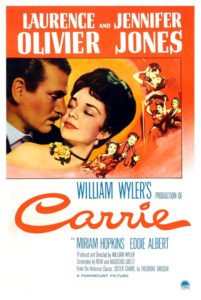
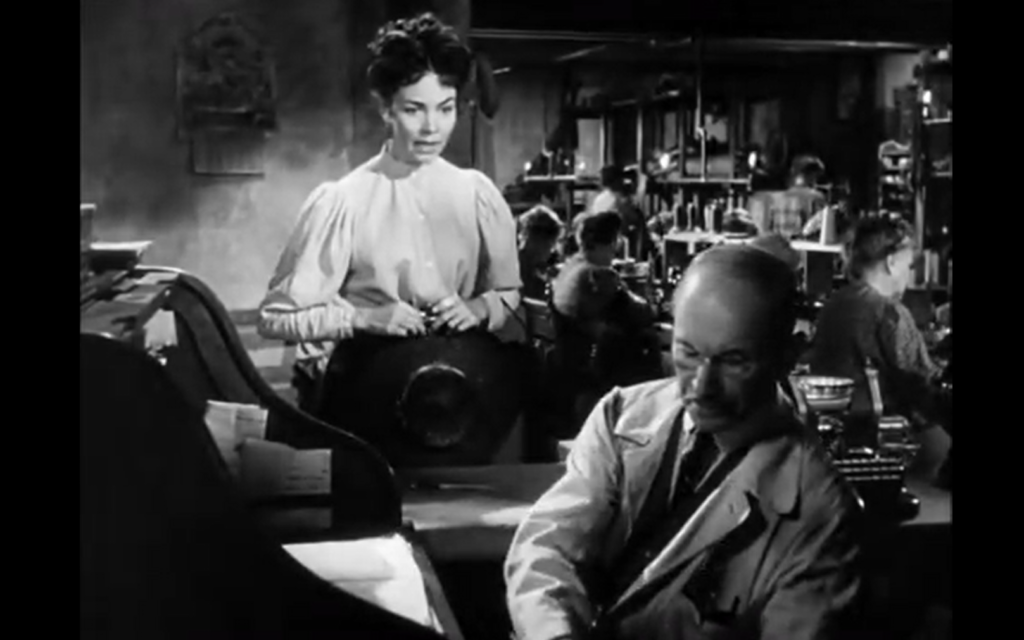
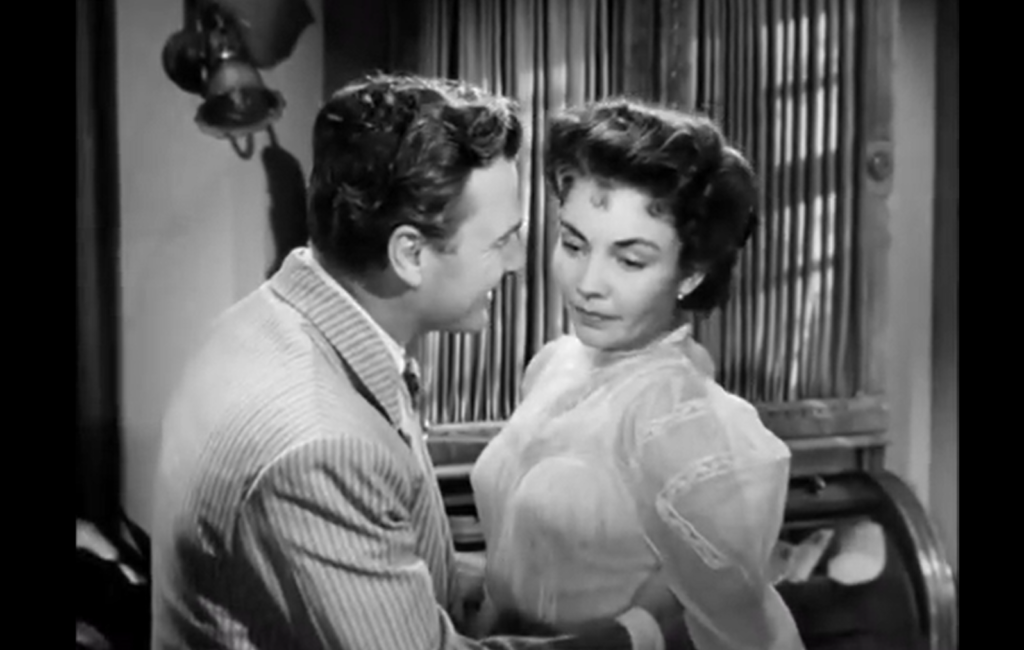
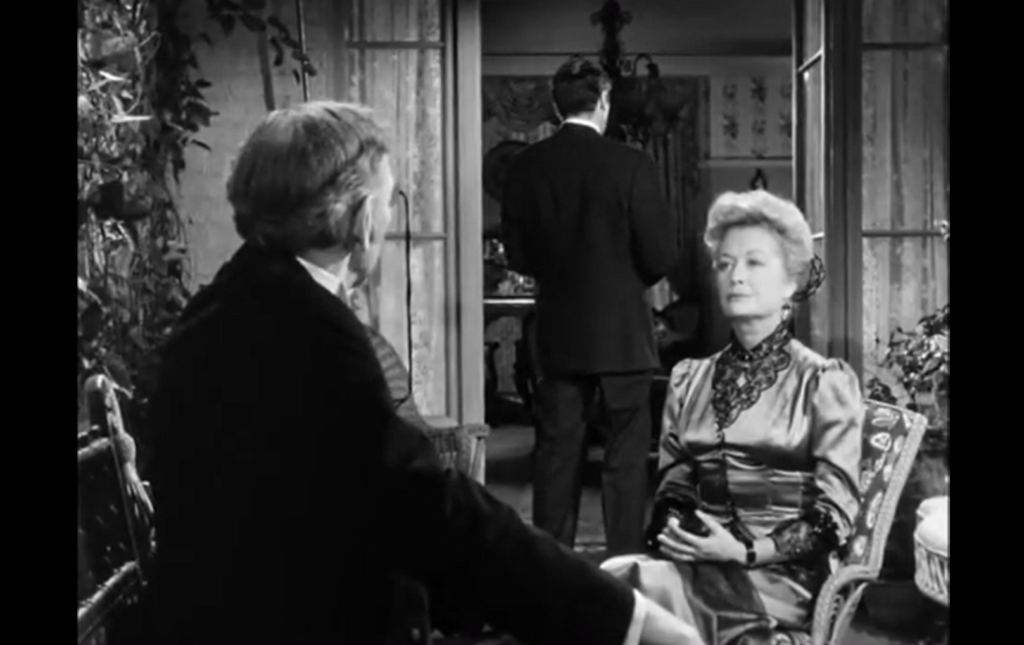
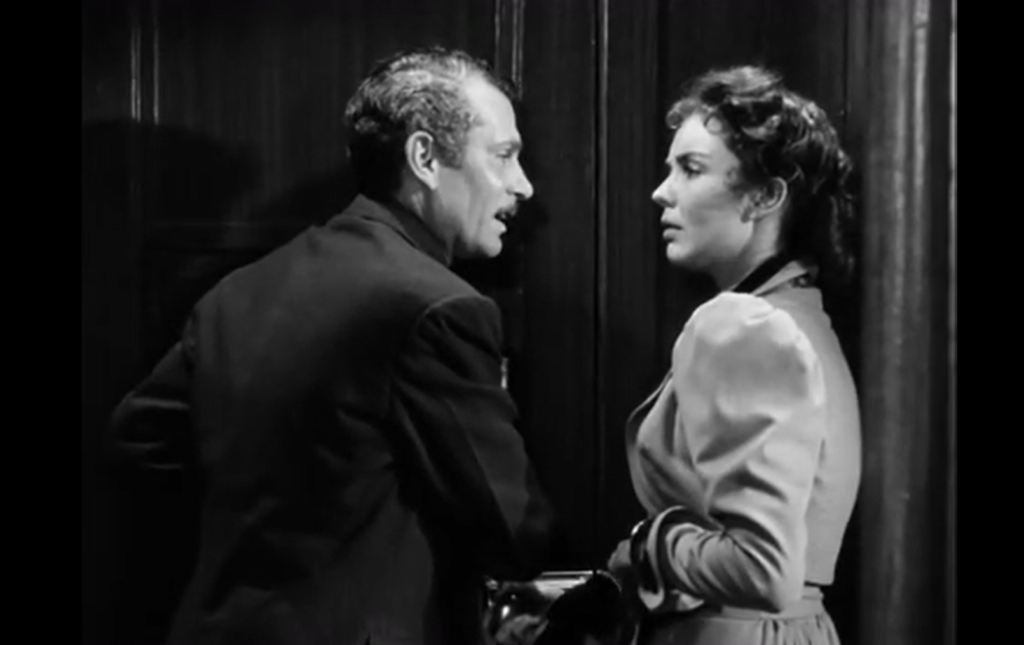
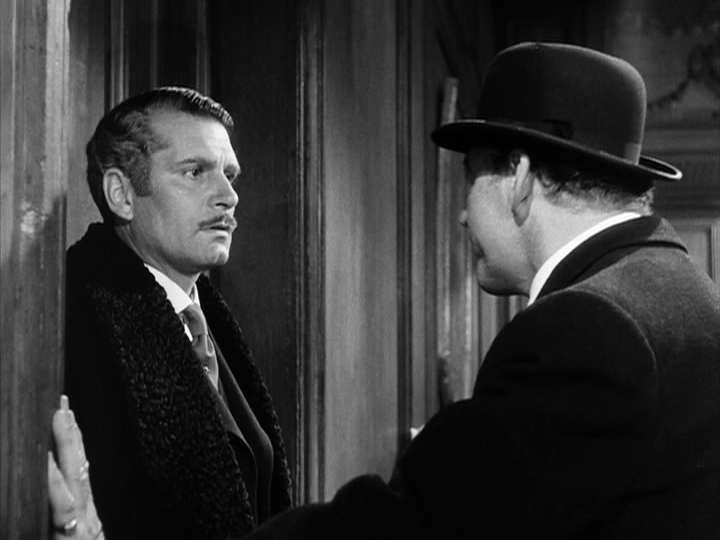
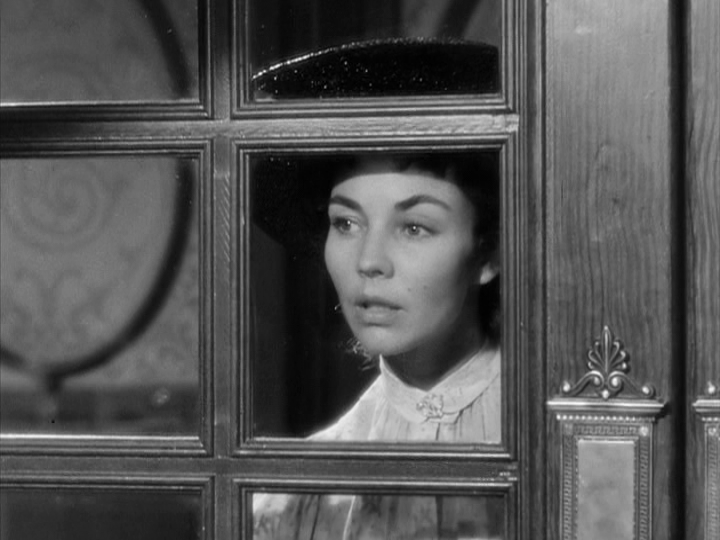
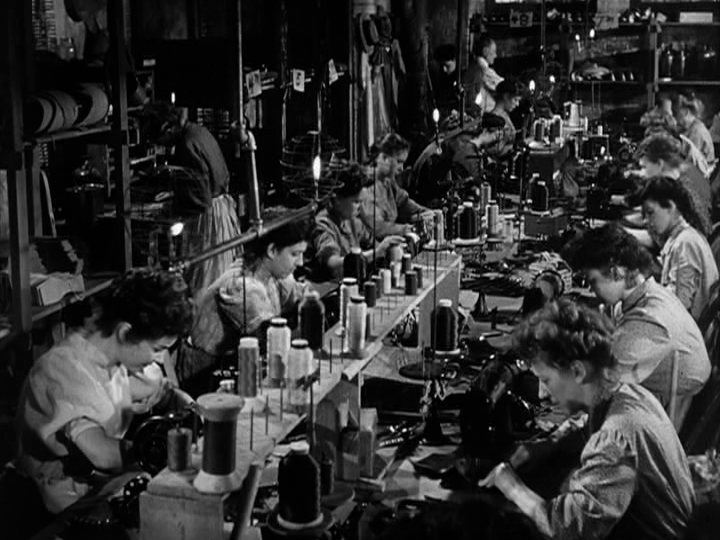
One thought on “Carrie (1952)”
First – and only – viewing (sometime back). It’s rather difficult for me to have much objectivity about this one – since I’d rather just say ‘Skip it.’
I read the novel. It was during a period in which I was sampling the works of a number of classic writers; those I thought I wasn’t paying attention to and probably should. As a result – when it came to some writers, I ended up reading more than just one book they’d written (because I had taken to them).
In the case of Dreiser – well, I started (and, so far, have ended) with ‘Sister Carrie’. I read the whole thing but I found it a kind of torture. I couldn’t stand the characters – and ultimately I had difficulty finding a point to it all.
~which, obviously, did not bode well for the film. And, sure enough, I couldn’t stand that either. It wouldn’t have mattered had it been the best production ever. I found it a relentlessly woeful depiction of human character. That may have been its point (without the inclusion of helpful insight). If so – sheesh!